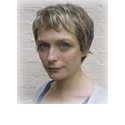 Monica Dux wears many different hats.
Monica Dux wears many different hats.
She is a columnist with The Age, a social commentator, speaker, and author of ‘Things I Didn’t Expect (when I was expecting)’, co-author of ‘The Great Feminist Denial’ and editor of the anthology ‘Mothermorphosis‘, which I read (and loved) earlier this year.
It is the book I wished I read when I was pregnant, and I’m so thrilled that Monica agreed to answer some questions about the process of birthing Mothermorphosis.
We seem to live in age that is awash with writing about parenting, so did you feel a sense of trepidation when embarking on Mothermorphosis?
There is no one story about motherhood, just as there is no one way that we become mothers, so the more stories that are out there, the better!
My last book, Things I Didn’t Expect, was a humorous memoir about my pregnancy, and when it was published I was struck by the number of times I was asked whether the world really needed another book about motherhood. We’d never ask that question of a man, writing yet another book about war, or his own fabulous career. Yet here are these momentous life experiences, pregnancy and motherhood, which are often dismissed as unworthy subjects for serious writing.
Of course, what we don’t need are more sugar-coated, inauthentic tales about the experience, or stories that gloss over the reality of motherhood in all its different shades. And that’s one of the things that motivated me to put Mothermorphosis together; a desire to do justice to that variety, by publishing a collection of stories that was just as diverse and nuanced.
What do you want mothers to take away from this book?
I’d like to think that most mothers reading this book would find something in there that they can relate to. Women often feel isolated when they become mothers, particularly when the experience is not exactly what they’d been led to expect. So there’s tremendous value in realizing that your experience is something that others have also shared.
I hope that the stories will remind people of the vast differences in the experience of becoming a mother, as well as the things that binds us all together.
Has motherhood changed you as a writer?
Most definitely. On a practical level, becoming a mother re-focused my attention on feminist issues to do with parenting and children.
But it also fundamentally changed the way that I am able to write. I’m not sure if I’m a better writer, but having children has completely changed the way that I am able to work, and the priorities that dominate my days. It has forced me to be more disciplined, and focus more on my craft.
What is the role of an editor in a collection like this?
I drew up a list of possible writers with Dina Kluska at MUP who commissioned the book. Dina and I had many conversations about what sort of collection we wanted, the types of stories we felt needed to be told and the women we felt would be able to deliver on that.
I wanted fine writers, obviously, women who could tell a good story, but also women who had something interesting to say. Contrary, or unexpected, or honest.
I worked with some writers more closely than others. After all the essays had come in, and I gave my feedback, I handed them over to the copy editor. Throughout this process I kept in mind how to order the chapters, how to keep the reader interested, focusing on tone and pace and style, breaking up the sad pieces with the funny ones, that sort of thing.
Now, this may feel like you are choosing a favourite child, but tell me, is there are particular essay that resonated with you?
That is a hard question! I love them all, but for different reasons. I was extremely grateful to women like Hilary Harper, Hannah Robert and George McEncroe for their generosity in sharing such painful stories. But all of the chapters made me think about motherhood from a different perspective. I was really thrilled with the quality of the writing, and the honesty in their story-telling. I’m also extremely grateful for one (nameless!) writer who wrote a superb piece after a writer had to pull out. I contacted them in a panic, begging them to write for me, and they came to the rescue.
Some of the profits from the book go to PANDA. How and why did that come about?
The whole point of the collection was to support mothers, so donating our fees to PANDA seemed like a logical way to do this. We’re hoping that this collection helps raise the profile of PANDA, which does such excellent and important work.
Do you think there is a role for a Fathermorphosis?
Most definitely. There are very different expectations placed on fathers today, and give that their role has changed so much, I believe that many men would be keen to read about the experiences of other fathers, in a form that moves beyond cliché.
Are you working on another book? Can you tell me about it?
I am, slowly…something to do with Jesus.

